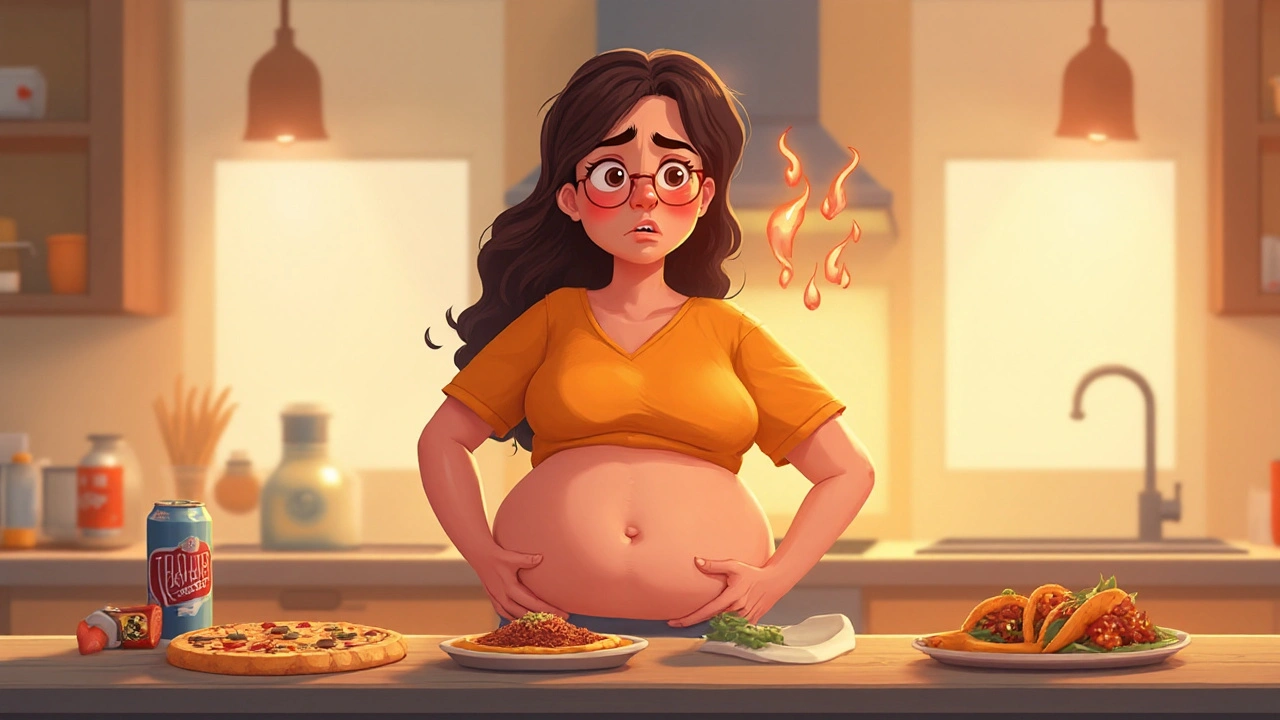Abdominal Distension: What It Is and How to Feel Better Fast
That tight, swollen feeling in your belly can be annoying and sometimes painful. Most people call it bloating or abdominal distension, and it often shows up after meals, during stress, or when you’re not moving enough. The good news? In many cases you can fix it with simple everyday changes.
Common Triggers of Abdominal Distension
First, let’s see why your stomach gets puffed up. The usual suspects are:
- Eating too fast. Swallowing air while you gulp down food adds gas to the gut.
- High‑FODMAP foods. Beans, onions, broccoli, and some fruits contain carbs that ferment quickly, producing gas.
- Carbonated drinks. Soda and sparkling water deliver bubbles straight to your stomach.
- Lactose intolerance. If you can’t break down lactose, dairy can leave you feeling bloated.
- Stress. The gut‑brain connection means anxiety can slow digestion and trap gas.
Notice any pattern? Pinpointing the trigger helps you target the fix.
Fast Ways to Reduce Bloating
Got a distended belly right now? Try these quick actions:
- Slow down. Put down your fork between bites, chew each mouthful at least 15‑20 times. This cuts down swallowed air and helps enzymes break food down.
- Drink warm water. A cup of warm water with a splash of lemon stimulates gut movement and flushes excess gas.
- Move a little. A 5‑minute walk or gentle stretches (like twisting your torso) can push trapped gas toward the exit.
- Avoid gum and straw. Both make you swallow more air, which ends up as bloating.
- Try an over‑the‑counter enzyme. Products with lactase or alpha‑galactosidase can break down dairy or beans and reduce gas formation.
If the swelling sticks around for more than a day, or you get severe pain, vomiting, or changes in bowel habits, it’s time to call a doctor. Those could be signs of an underlying condition like IBS, gallstones, or a blockage.
Long‑term, keep a food diary for a week. Write down what you eat, how quickly you eat, and how you feel afterwards. Patterns will pop out, making it easier to cut out the real trouble‑makers.
Staying hydrated, eating fiber gradually, and getting regular exercise keep the gut moving smoothly. For many, these basics solve most abdominal distension episodes without any prescription meds.
Remember, occasional bloat is normal—your body is just processing food. But if it becomes a frequent, uncomfortable visitor, don’t ignore it. A quick chat with your GP can rule out serious issues and get you back to feeling light again.

Abdominal Distension and GERD: How They’re Connected & What to Do
Sep, 23 2025Explore why a bloated belly often goes hand‑in‑hand with heartburn, how the two conditions influence each other, and practical steps to find relief.
READ MORE